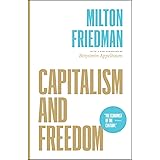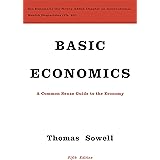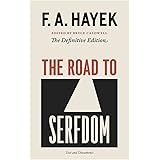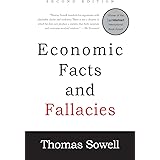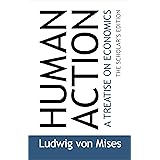
Enjoy fast, free delivery, exclusive deals, and award-winning movies & TV shows with Prime
Try Prime
and start saving today with fast, free delivery
Amazon Prime includes:
Fast, FREE Delivery is available to Prime members. To join, select "Try Amazon Prime and start saving today with Fast, FREE Delivery" below the Add to Cart button.
Amazon Prime members enjoy:- Cardmembers earn 5% Back at Amazon.com with a Prime Credit Card.
- Unlimited Free Two-Day Delivery
- Streaming of thousands of movies and TV shows with limited ads on Prime Video.
- A Kindle book to borrow for free each month - with no due dates
- Listen to over 2 million songs and hundreds of playlists
- Unlimited photo storage with anywhere access
Important: Your credit card will NOT be charged when you start your free trial or if you cancel during the trial period. If you're happy with Amazon Prime, do nothing. At the end of the free trial, your membership will automatically upgrade to a monthly membership.
Buy new:
-38% $10.49$10.49
Ships from: Amazon.com Sold by: Amazon.com
Save with Used - Good
$7.86$7.86
Ships from: Amazon Sold by: ZBK Wholesale

Download the free Kindle app and start reading Kindle books instantly on your smartphone, tablet, or computer - no Kindle device required.
Read instantly on your browser with Kindle for Web.
Using your mobile phone camera - scan the code below and download the Kindle app.

OK
 Audible sample Sample
Audible sample Sample 


Free to Choose: A Personal Statement Paperback – November 26, 1990
Purchase options and add-ons
A powerful and persuasive discussion about economics, freedom, and the relationship between the two, from today's brightest economist.
In this classic discussion, Milton and Rose Friedman explain how our freedom has been eroded and our affluence undermined through the explosion of laws, regulations, agencies, and spending in Washington. This important analysis reveals what has gone wrong in America in the past and what is necessary for our economic health to flourish.
- Print length338 pages
- LanguageEnglish
- Publication dateNovember 26, 1990
- Dimensions5.31 x 0.97 x 8 inches
- ISBN-109780156334600
- ISBN-13978-0156334600
The Amazon Book Review
Book recommendations, author interviews, editors' picks, and more. Read it now
Frequently bought together

More items to explore
Editorial Reviews
From the Back Cover
About the Author
Product details
- ASIN : 0156334607
- Publisher : Mariner Books Classics; LATER PRINTING. edition (November 26, 1990)
- Language : English
- Paperback : 338 pages
- ISBN-10 : 9780156334600
- ISBN-13 : 978-0156334600
- Item Weight : 2.31 pounds
- Dimensions : 5.31 x 0.97 x 8 inches
- Best Sellers Rank: #26,587 in Books (See Top 100 in Books)
- #14 in Free Enterprise & Capitalism
- #23 in Civil Rights & Liberties (Books)
- #25 in Theory of Economics
- Customer Reviews:
About the authors

Rose D. Friedman is the bestselling author of FREE TO CHOOSE and TWO LUCKY PEOPLE: MEMOIRS, the latter published by the University of Chicago Press. She co-authored these two books with her husband Milton Friedman.

Milton Friedman is a senior research fellow at the Hoover Institution, Stanford University, and the Paul Snowden Distinguished Service Professor Emeritus of Economics at the University of Chicago. In 1976 he was awarded the Nobel Prize in economics. He has written a number of books, including two with his wife, Rose D. Friedman---the bestselling Free to Choose and Two Lucky People: Memoirs, the latter published by the University of Chicago Press.
Photo by The Friedman Foundation for Educational Choice (RobertHannah89) [CC0], via Wikimedia Commons.
Customer reviews
Customer Reviews, including Product Star Ratings help customers to learn more about the product and decide whether it is the right product for them.
To calculate the overall star rating and percentage breakdown by star, we don’t use a simple average. Instead, our system considers things like how recent a review is and if the reviewer bought the item on Amazon. It also analyzed reviews to verify trustworthiness.
Learn more how customers reviews work on AmazonReviews with images
-
Top reviews
Top reviews from the United States
There was a problem filtering reviews right now. Please try again later.
commentator during the Twentieth Century. Before he died in 2006, he wrote
and co-wrote several books relating economic theory, policy studies, and
statistics. He was the recipient of the Nobel Prize in economics in 1976.
I just finished reading "Free To Choose: A Personal Statement," written by
Thomas Friedman and his wife, Rose Friedman. The book is dense and full of
well thought-out arguments for free markets, smaller government, and how
policies that adhere to these principles will result in greater liberty and
freedom for the people that live under them.
This book is almost thirty years old and it shows. Many of the numbers
the Friedmans use in the book are laughable today, especially those they use as
salaries for the common man or the cost of an average home.
It's fascinating, however, they write at the end of the Carter
administration that "the tide is turning."
"The failure of Western governments to achieve their proclaimed objectives
has produced a widespread reaction against big government. In Britain the
reaction swept Margaret Thatcher to power in 1979 on a platform pledging
her Conservative government to reverse the socialist policies that had
been followed by both Labour and earlier Conservative governments ever
since the end of World War II."
"Free To Choose" is organized in chapters that each spend a liberal amount
of print on a specific category of policy thinking. The first chapter, "The
Power Of The Market" spends nearly 30 pages covering the ideals of a free
market, the dangers of price controls, and the role of government with
respect to markets. The second chapter is devoted to governments' role in
free trade and overall liberty and economic growth. Hint: Friedman isn't a
fan of tariffs or any other kind of government meddling with trade between
nations. He offers a compelling historical argument for free trade by
examining the governance and trade policies of Japan during the latter half
of the 19th century and India during the latter half of the 20th century.
The third chapter, "The Anatomy of Crisis," is perhaps the most relevant to
readers today. It examines the modern banking system in the United States
from the inception of the Federal Reserve in 1913, the depression nobody
remembers from 1920-21, and the Great Depression of the 1930s. For those
who believe we are currently at risk of suffering from the same mistakes or
making greater ones today in our vulnerable financial status, this chapter
offers some brilliant insights.
In the conclusion of this chapter, the Friedmans write:
"In one respect the (Federal Reserve) System has remained completely
consistent throughout. It blames all problems on external influences
beyond its control and takes credit for any and all favorable
occurrences. It thereby continues to promote the myth that the private
economy is unstable, while its behavior continues to document the reality
that government is today the major source of economic instability."
The fourth chapter, "Cradle to Grave," examines the development of the
*welfare state* beginning in Europe in the late 1800s and then in the
U.S. in the 1920s. Friedman spotlights health, education, and welfare in
this chapter because at the time the book was written, they fell under a
single department within the federal government.
"The waste is distressing, but it the least of the evils of the
paternalistic programs that have grown to such massive size. Their major
evil is their effect on the fabric of our society. They weaken the
family; reduce the incentive to work, save, and innovate; reduce the
accumulation of capital; and limit our freedom. These are the
fundamental standards by which they should be judged."
The following chapter challenges the popular notions of what "equality"
means. The Friedmans distinguish between the following:
* Equality of outcome
* Equality of opportunity
* Equality before God
Concerning *equality of outcome*, they write:
"Life is not fair. It is tempting to believe that government can rectify
what nature has spawned. But it is also important to recognize how much
we benefit from the very unfairness we deplore."
This chapter goes on to examine the effects of egalitarian policies as
practiced in the US and in other modern societies.
"... a society that puts freedom first will, as a happy by-product, end up
with greater freedom and greater equality. Though a by-product of
freedom, greater equality is not an accident. A free society releases the
energies and abilities of people to pursue their own objectives. It
prevents some people from arbitrarily suppressing others. It does not
prevent some people from achieving positions of privilege, but so long as
freedom is maintained, it prevents those positions of privilege from
being institutionalized; they are subject to continued attack by other
able, ambitious people. Freedom means diversity but also mobility. It
preserves the opportunity for today's disadvantaged to become tomorrow's
privileged and, in the process, enabled almost everyone, from top to
bottom, to enjoy a fuller and richer life."
Next, the Friedmans attach "What's Wrong with Our Schools?"
It's no surprise their position is that centralized planning is a
substantial culprit of the problem with schools. Again, freedom is the
answer, they say. Vouchers, for example, tied with freedom to choose
public schools, are an ideal way to encourage competition between private
and public schools and drive education quality up.
I found this passage about public subsidies of higher education shocking
considering what we have observed in 2009:
"When we first started writing about higher education, we had a good deal
of sympathy for the (justification that public subsidies was an
investment in future productivity and economic growth of society). We no
longer do. In the interim we have tried to induce the people who make this
argument to be specific about the alleged social benefits. The answer is
almost always simply bad economics. We are told that the nation benefits
by having more highly trained people, that investment in providing such
skills is essential for economic growth, that more trained people raise
the productivity for the rest of us. These statements are correct. But
none is a valid reason for subsidizing higher education. Each statement
would be equally correct if made about physical capital (i.e., machines,
factory buildings, etc.), yet **hardly anyone would conclude that tax money
should be used to subsidize the capital investment of General Motors or
General Electric.**
Milton Friedman is undoubtably spinning in his grave today.
Following education is the question of "Who Protects the Consumer?" This
chapter discusses the development of the Interstate Commerce Commission,
The Food and Drug Administration, The Consumer Products Safety Commission,
The Department of Energy and the Environmental Protection Agency. The
Friedmans raise some very valid questions about the government's role in
establishing these authorities and whether they are effective in their
stated objectives.
For example, many are familiar with Ralph Nader's book, "Unsafe at Any
Speed," in which he supposedly documents the safety risk the Chevrolet
Corvair was to its occupants. This book ignited a firestorm that eventually
crushed the Corvair out of production and resulted in new government
regulations pertaining to the manufacture of automobiles. It's difficult to
argue that the outcome was a bad thing, but what about the original
premise? Was the Corvair that bad? My dad was a Corvair collector and had
two that he tinkered with, restored, and drove around on occasion. I always
thought they were odd cars because the engine was in the back. The
Friedmans point out that ten years after Nader's book landed, "one of the
agencies that was set up in response to the subsequent public outcry
finally got around to testing the Corvair that started the whole thing.
They spent a year and a half comparing the performance of the Corvair with
the performance of other comparable vehicles and they concluded, 'The
1960-63 Corvair compared favorably with the other contemporary vehicles
used in the tests.'"
Next is "Who Protects the Worker?" Here labor unions land square in the
crosshairs. Also addressed are government interventions into work such as
regulations against child labor, minimum wage laws, OSHA oversight, workers
compensation, and more.
Chapter 9 is about inflation. This isn't very relevant right now, but
likely will deserve a re-read in a year or so.
Here, Friedman puts his statistician muscles to work and establishes
through numbers a strong correlation between monetary control and consumer
prices. When the the Treasury and the Federal Reserve flood the market
with money, prices respond by going up.
The final chapter is a nice capstone on the book and discusses how the U.S.
Constitution relates to many of the policies discussed and how it is eroded
by some.
Appendix A is an interesting inclusion. It is the party platform from the
Socialist party during the 1928 presidential campaign. The Friedmans go
through each of the 14 items in the platform and demonstrate that despite
the Socialist Party not having a chance in Hell of ever having a candidate
elected, since 1928, just about each and every one of these ideas put forth
by the Socialist Party has been enacted.
That's something to think about.
[...]. It's not a
quick read, but definitely an informative and educational one.
Friedman sets out a strong case that when people are left to pursue their own interests, the whole becomes greater than the sum of the parts, and the commonwealth benefits more than when central planners try to orchestrate economies. That should be obvious now that nations like China and Vietnam, while retaining political repression, have given wide scope to free markets and thereby lifted millions out of poverty. Contrast that with Cuba or Venezuela, where central economic planning prevails, and the people are largely destitute.
The book's argument is often attacked as an appeal to "greed," which is unfortunate as "self-interest" is not necessarily greed. I think mostly of one of my leftist friends in this regard who assails capitalism and whatnot, but who, due to his comfortable job in a government bureau, is able to pursue an acting and singing career after hours. Is he not, there, pursuing his self interest? And doesn't the larger public benefit from his ability to deploy his talents? I along with many have enjoyed many of his performances, and will continue to. It's just Friedman's thesis at work: we all benefit when everyone seeks his own interest.
The book is often attacked as being anarchistic (or something like that) -- that is, that "limited government" or "less regulation" means "no government or "no regulation." Quite to the contrary, Friedman argues for a very clear and specific role for government in regulating natural monopolies, enforcing contracts, and taking many other actions to make sure that markets function openly. He clearly embraces regulation with the stipulation that when employed the benefits exceed the costs. And there's the rub with many government programs (say, agriculture subsidies): they favor entrenched interests rather than the commonwealth.
His arguments about free trade convince me that it is the best way to help the poor in the world. I've read that the annual subsidy for one cow in Belgium rivals the annual salary of an African subsistence farmer. Take down that trade barrier benefiting the rich Belgian cow owner, and that farmer suddenly has a chance to present his goods on a world market. My point is, if you care about the poor, and if you care about social justice and all that, this might just be a crazy (and, for a change, effective) way to go.
I don't fully agree with some of the book's policy prescriptions regarding environmental, education or monetary policy, but I suggest that Friedman's thoughts, formulated in the 1970s and published first in 1980, are far more likely to be successful than current ideas like "common core" or "quantitative easing."
Overall, this is a thought-provoking read no matter what your political stripe is. Check it out.
Top reviews from other countries
The argumentation presented in this book is very well formulated and easy to understand. You do not have to agree with every conclusion drawn from this argumentation, after all we are not as reasonable as we should be, however I think this book summarizes quite well the train of thought behind the liberal worldview and is definately worth a recommendation.






